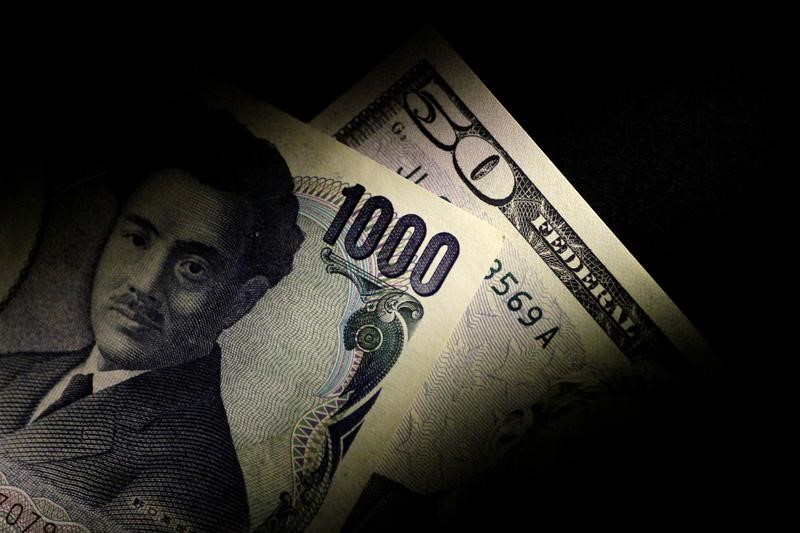Investing.com-- Most Asian currencies weakened slightly on Tuesday, extending recent losses as traders remained risk-averse before a string of key economic readings this week.
The Japanese yen was an outlier, firming slightly after sinking to near three-month lows in the prior session on heightened political uncertainty in the country. A Bank of Japan meeting is also on tap this week.
Regional currencies were pressured by a strong dollar, as the greenback sat on recent gains before a slew of economic readings this week that are likely to factor into expectations for interest rates. Anxiety over the upcoming presidential election also kept traders biased towards the dollar.
Japanese yen steadies amid intervention threats
The Japanese yen’s USDJPY pair fell 0.2% on Tuesday, retreating slightly from near three-month highs after Finance Minister Katsunobu Kato said authorities were monitoring volatility in currency markets.
His comments came after the yen weakened sharply on the results of a general election held on Sunday, where the ruling LDP-led coalition lost its majority.
The results of the election heralded increased political uncertainty in the country, which could present difficulties for the BOJ in raising interest rates further. The central bank is widely expected to keep rates unchanged on Thursday.
This notion had battered the yen even before Sunday’s elections, with the currency nursing steep losses through October.
Dollar steady with econ data, election in focus
The dollar index and dollar index futures moved little in Asian trade, remaining close to three-month highs hit in recent sessions.
The greenback was sitting on strong gains in October as a swathe of positive economic data spurred bets that the Fed will cut rates at a slower pace in the coming months.
Economic readings due this week are set to offer more cues on this front. Third-quarter gross domestic product data is due on Thursday, followed by PCE price index data- the Fed’s preferred inflation gauge- and nonfarm payrolls data- both due on Friday.
Positioning in the dollar also picked up amid increased bets that Donald Trump will beat Kamala Harris in the upcoming presidential election, with voting set for November 5. Trump’s policies are expected to be protectionist and inflationary, presenting a stronger outlook for the dollar.
Most Asian currencies retreated on this notion, with traders now looking to more economic cues from the region this week.
The Australian dollar’s AUDUSD pair fell 0.2% ahead of quarterly consumer inflation data due on Wednesday.
The Chinese yuan’s USDCNY pair rose 0.2% before purchasing managers index data for October, due on Thursday. The reading is expected to reflect some effects of the swathe of stimulus measures announced by Beijing over the past month.
The South Korean won’s USDKRW pair rose 0.4%, while the Singapore dollar’s USDSGD pair rose 0.2%.
The Indian rupee’s USDINR pair was flat but remained close to recent record highs.
